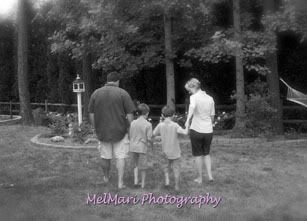September 16, 2008
Session Two
The Approaching and Approachable God
1. Comparing verses 17 – 19 and 20 – 21. In the first discourse God is speaking to Himself, and in the second He addresses Abraham.
Verses 17 – 19
"Then the LORD said, 'Shall I hide from Abraham what I am about to do? Abraham will surely become a great and powerful nation, and all nations on earth will be blessed through him. For I have chosen him, so that he will direct his children and his household after him to keep the way of the LORD by doing what is right and just, so that the LORD will bring about for Abraham what he has promised him.' "
Verses 20 – 21
"Then the LORD said, 'The outcry against Sodom and Gomorrah is so great and their sin so grievous that I will go down and see if what they have done is as bad as the outcry that has reached me. If not, I will know.' "
Our Bible study group would like to ask if anyone has an opinion on who was crying out to the LORD about the sins of Sodom and Gomorrah. Was it the righteous crying out to the LORD or creation crying out as it did in the Psalms? If you have an opinion, please e-mail me so I can share it with our group.
Beth also pointed out that the LORD made it a point to come to Abraham so He could teach Abraham, first hand, how to be right and just. In verses 20 and 21, the LORD set the example of actually going to find out how wicked the city was before He made judgment.
The first discourse:
• Beautifully demonstrates that God's actions are perfectly consistent with His thoughts.
• Positions Abraham once again in the role of prophet (see Amos 3: 7)
Amos 3: 7 states:
"Surely the Sovereign LORD does nothing without revealing his plan to his servants and the prophets." In other words, God does nothing that is not revealed in His Word.
2. The second discourse is undoubtedly intended to engage dialogue with Abraham. God has deliberately cast Himself in an anthromorphic role throughout Genesis 18. Anthropos means man or mankind. Morphe means form or shape. Anthropomorphic means giving human shape or form to something that is not human.
3. God invited Abraham – a mere man – to walk with Him so that He could teach Abraham how a man can walk like Him. You must learn to walk in Truth by walking with Truth.
4. Can God trust Abraham (v. 17 above) and can Abraham trust God (vv. 23 – 25)?
Verses 23 – 25
`"Then Abraham approached Him and said: 'Will you sweep away the righteous with the wicked? What if there are fifty righteous people in the city? Will you really sweep it away and not spare the place for the sake of the fifty righteous people in it? Far be it from you to do such a thing – to kill the righteous with the wicked, treating the righteous and the wicked alike. Far be it from you! Will not the Judge of all the earth do right?' "
• The affirmative answer to the first concern results in Abraham's being cast in a second role: God's friend. (Jas 2: 23)
James 2: 23
"And the scripture was fulfilled that says, 'Abraham believed God, and it was credited to him as righteousness,' and he was called God's friend.
Psalm 25: 14
"The LORD confides in those who fear him; he makes his covenant known to them.
John 15: 14 – 16
"You are my friends if you do what I command. I no longer call you servants, because a servant does not know his master's business. Instead, I have called you friends, for everything I learned from my Father I have made known to you. You did not choose me, but I chose you and appointed you to go and bear fruit – fruit that will last. Then the Father will give you whatever you ask in my name. This is my command: Love each other.
5. Our comfort can be this: what is not sorted out here and now is sorted out then and there!
Wednesday, September 17, 2008
Subscribe to:
Post Comments (Atom)



No comments:
Post a Comment